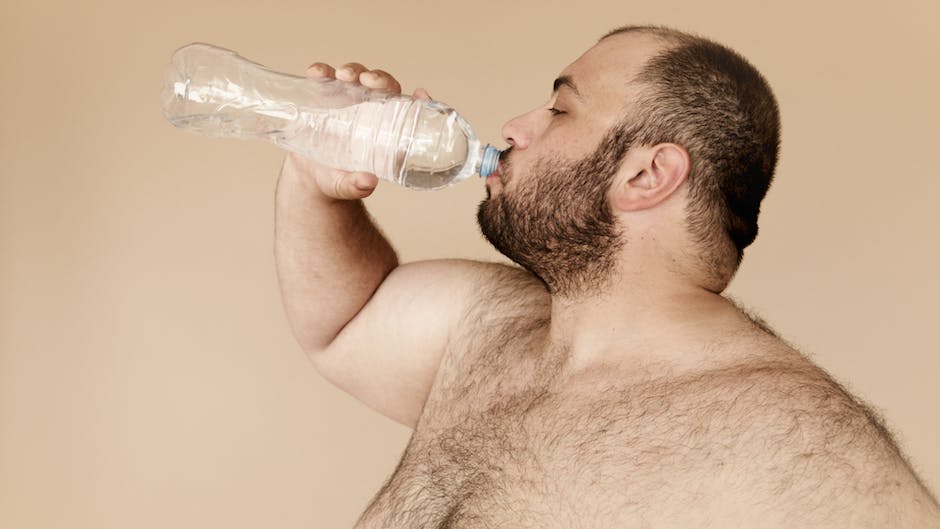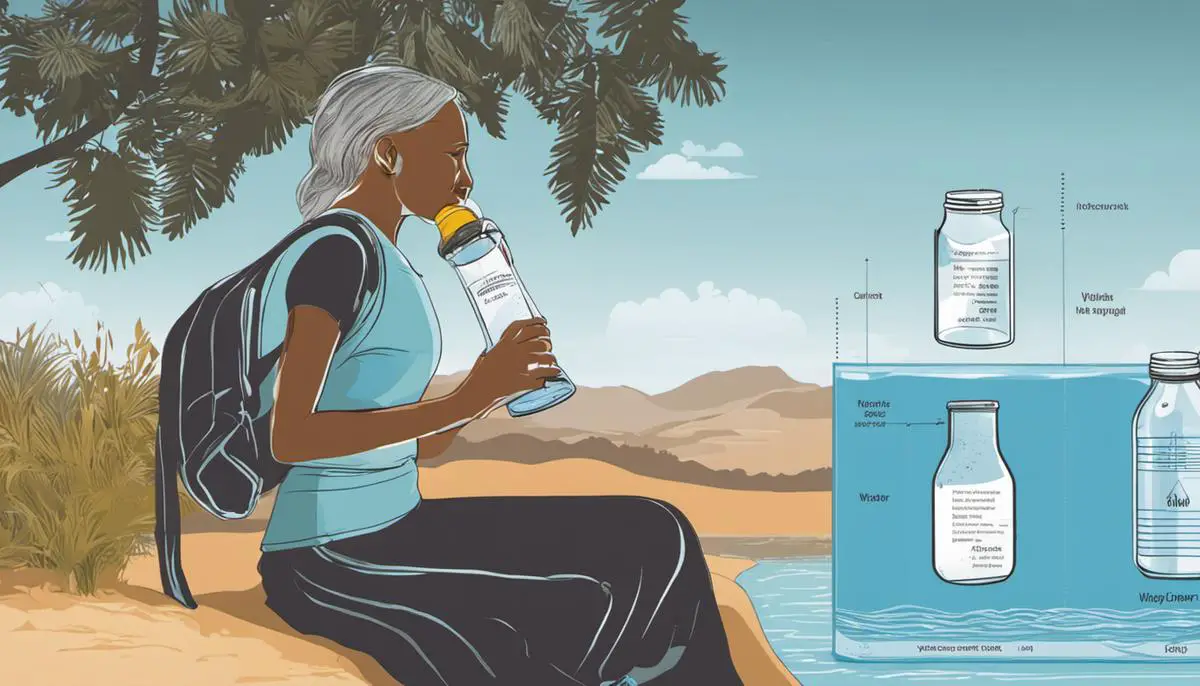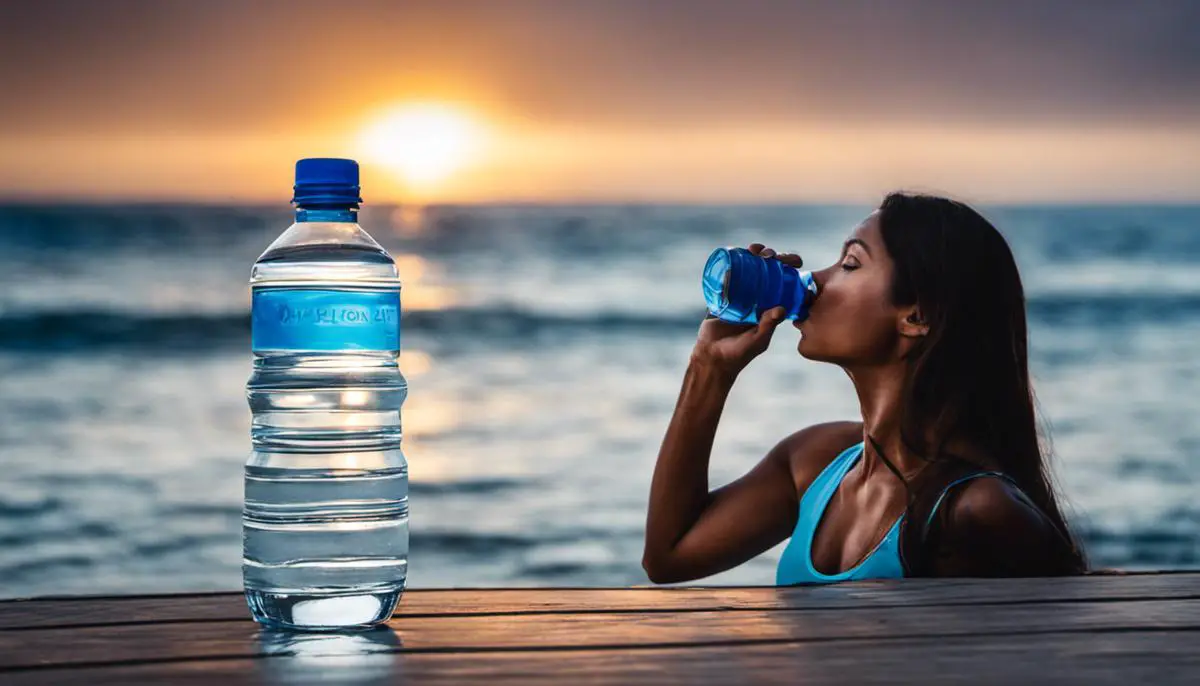The human body is approximately 60% water, underscoring the crucial role that hydration plays in our overall health, energy levels, and even cognitive function. Despite this, many individuals often overlook the importance of maintaining the right balance of water in their bodies, leading to underhydration and, in severe instances, life-threatening conditions such as dehydration. This article sheds light on the importance of optimized water consumption, especially regarding the correlation between body weight and hydration needs. It delves into the different factors that influence an individual’s water needs, discusses in detail the science behind weight-based hydration, and provides practical strategies to meet hydration goals.
Understanding the Importance of Hydration
Role of Water in Human Body
Water is vital to the proper functioning of the human body. It facilitates crucial physiological processes, including digestion, absorption, circulation, creation of saliva, transportation of nutrients, and maintenance of body temperature. Furthermore, water helps to preserve the proper functioning of the body’s cells, tissues, and organs, lubricating the joints and nourishing and protecting the brain, spinal cord, and other tissues. It also aids in flushing out waste products from the body.
Hydration and Its Significance
Hydration refers to the body’s absorption of water. Good hydration is crucial as water makes up a large part of the body – around 60% in adults. Maintaining this balance helps regulate body temperature, keep skin healthy, maintain optimal physical and cognitive performance, and possibly aid in weight loss and other health goals.
Daily Water Intake Recommendations
While the actual amount of water intake can vary based on a person’s age, gender, weight, and individual health conditions, the National Academies of Sciences, Engineering, and Medicine suggest a daily total water intake of about 3.7 liters (or 13 cups) for the average healthy adult male and 2.7 liters (or 9 cups) for the average healthy adult female. This total water intake can come from all beverages and foods consumed in a day.
Weight-Based Water Consumption Guide
In addition to the general daily water intake recommendations, a weight-based water consumption guide can be a more personalized approach to hydration. This method suggests that for every kilogram of your body weight, you should drink 30 to 35 milliliters of water. For instance, if a person weighs 75 kilograms, they should consume between 2250 to 2625 milliliters of water, roughly equating to 2.25 to 2.62 liters.
Dangers of Dehydration
Dehydration occurs when the body does not have enough water to carry out normal functions. Even mild dehydration can drain energy levels and make individuals feel tired. More severe dehydration can have serious implications, including swollen feet, headache, dizziness, and in extreme cases, dehydration can lead to life-threatening conditions like heat injury, kidney problems, and seizures.
For certain demographics, such as those who are physically active, those residing in hot climates, pregnant and breastfeeding women, and individuals suffering from specific illnesses, the water requirements might be higher. Therefore, consultation with a healthcare provider is imperative if you have any concerns regarding your hydration needs.

Factors Influencing Water Intake
The Role of Weight in Determining Water Intake
The water consumption required for optimal health significantly depends on an individual’s weight. This is because water’s central roles include delivering essential nutrients to cells, regulating body temperature, and enabling bodily functions. The heavier a person is, the greater the number of cells requiring hydration — leading to a heightened water demand. Consequently, individuals with a higher body mass are often recommended to consume more water than those with lesser body weight, ensuring the proper hydration of all cells in their body.
The Role of Age in Water Consumption
Age is another important determinant when it comes to water intake. Generally, as we age, our body’s water content reduces, and thus we might need less water compared to when we were younger. However, our body’s ability to conserve water also decreases with age, and our sense of thirst may not be as sharp. These factors can increase the risk of dehydration, implying that older adults may need to consciously increase water intake to compensate.
How Activity Level Influences Water Needs
Physical activity levels also affect water consumption. Active individuals lose more water through sweating, which is the body’s natural way to cool down during exercise or strenuous physical activity. Rehydrating by drinking enough water is vital to replace the water lost and prevent dehydration. As a general rule, individuals who engage in high levels of physical activity generally need to consume more water than those with sedentary lifestyles.
Climate and Water Consumption
Climate implications on water consumption cannot be ignored. Living in hot or humid climates, altitude, or physically demanding work environments can increase perspiration, resulting in higher water loss. Under such circumstances, individuals may need to consume more water than usual to stay hydrated.
Water Intake During Pregnancy or Breastfeeding
Pregnancy and breastfeeding place additional hydration demands on the body. During these stages, the body requires more water to support fetal development and to produce breast milk. As such, women who are pregnant or breastfeeding are usually advised to increase their water intake significantly to meet these needs.
Health Conditions and Water Intake
Certain health conditions, such as kidney stones or urinary tract infections (UTIs), require increased water intake. Water plays a key role in flushing out waste from the body and preventing the formation of kidney stones. Similarly, in cases of UTIs, water assists in removing bacteria from the urinary system, reducing the chances of infection or promoting faster recovery.
There’s no doubt that staying adequately hydrated is an essential aspect of maintaining good health. Individual hydration needs largely depend on many factors like age, pregnancy or breastfeeding status, the state of one’s health, and even the prevailing climate conditions. Among all these variables, weight plays a particularly vital role in determining water consumption due to its direct relationship with the body’s cellular functions. Hence, it’s essential to understand these factors and adjust water intake accordingly, to ensure optimal hydration and general well-being.

Weight-Based Hydration: The Science and Calculations
Gaining Insight into Weight-Based Hydration
Water is a crucial component of the human anatomy, accounting for approximately 60% of our body weight. This vital liquid is responsible for many physiological processes ranging from body temperature regulation, digestion, nutrient absorption and transportation, to cognitive function. Individual water needs, however, can drastically vary depending on several factors such as age, gender, weight, activity level, health condition, and even the climate. One of the widely accepted methods to quantify personal water requirements hinges on the concept of weight-based hydration.
The Science Behind Weight-Based Hydration
The amount of water your body needs depends largely on your body weight because body mass influences metabolic rate and heat production. Greater body weight can cause higher metabolic heat production, leading to increased water loss accordingly. This can mean that heavier individuals need more fluids than lighter ones in order to maintain balanced hydration levels. Moreover, body mass also influences the amount of water stored in our bodies. In this sense, the more mass an individual has, the more water they can retain and conversely, lose.
How to Calculate Your Water Intake Based on Weight
Calculating ideal water intake based on weight is a straightforward process. The general recommendation for water intake is around 1 milliliter of water per 1 calorie of food consumed. Since an average adult’s daily calorie requirement is between 2000 to 2500 calories, their water requirement would fall between 2-2.5 liters or about 8-10 cups per day.
However, for a more personalized approach considering weight, you can follow the following general guideline:
- Take your weight (in pounds) and divide it by 2.2.
- Multiply that number by your age.
- If you’re female, divide that number by 28.6. For males, divide by 30.4.
- The result is your daily intake in ounces.
For example: If you are a 30-year-old female that weighs 150 pounds,
- Start with your weight: 150/2.2 = 68
- Account for age: 68*30 = 2040
- Adjust for sex: 2040/28.6= 71 ounces of water per day.
Do remember that these are general guidelines and individual needs can vary. Always listen to your body and adjust your intake accordingly.
Individual Hydration Requirements
Hydration is crucial for our bodies to perform optimally, however, the amount of water one needs for proper hydration can vary. Factors such as engaging in high-intensity activities, exposure to extreme climate conditions or having certain health conditions (like kidney stones) can increase an individual’s need for hydration. It is important to note that both dehydration and overhydration (hyponatremia) can lead to serious health issues including problems with your heart, liver, or kidney functions, and in severe cases, may even be life-threatening.
If you are uncertain about how much water you should consume daily, it’s always wise to consult with a healthcare professional. They can provide a recommendation based on your unique body and lifestyle needs.

Practical Tips for Meeting Your Water Intake Goals
The Role of Weight in Hydration
While general hydration guidelines recommend 8 cups, or 64 ounces, of water per day, weight-based hydration guidelines provide a more personalized approach. This method suggests an intake ranging from 0.5 to 1 ounce of water per pound of body weight. For example, if you weigh 150 pounds, you should aim to drink between 75 to 150 ounces of water daily. Parrallelly, understanding and adjusting your water consumption based on your weight can play a significant part in maintaining optimal health.
Strategies for Increasing Water Intake
Incorporating more water into your daily routine can be a simple switch with a significant impact. One practical approach could be starting your day with a glass of water. Making it a habit to drink water first thing in the morning can set you up for a day of successful hydration. Additionally, consider drinking a glass of water before meals. Besides contributing to your daily water intake, this habit can also help promote healthy digestion and might control overeating.
Try keeping a water bottle with you at all times. Having water within reach encourages regular drinking, and it’s an effortless way to maintain hydration throughout the day.
Another effective method is flavoring your water. If the taste of plain water is not appealing to you, adding fruits, herbs, or a splash of juice might make it more interesting.
In terms of diet, eating hydrating foods that are high in water content, like cucumbers, watermelon, oranges, and lettuce, can supplement your water intake substantially.
Monitoring Your Water Intake
Tracking your daily water consumption is essential to ensure you’re meeting your hydration goals. You can use a daily log or journal to keep an accurate record. For instance, you can make a note every time you refill your water bottle. Some water bottles even come with markers indicating how much you should drink by certain times of the day.
Alternatively, technology can be a great help in tracking your hydration. Numerous smartphone apps can log your daily water intake, remind you when it’s time to drink, and even calculate your specific hydration needs based on your weight, activity level, and local weather conditions. Apps such as Daily Water Tracker Reminder, WaterMinder® or MyWaterBalance are worth checking out.
Going Beyond Just Drinking Water
Remember, while water plays a significant role in our bodies and health, overconsumption can also lead to a condition called water toxicity or hyponatremia. Always aim for a balanced approach to hydration combined with a healthy diet and regular exercise. It may also be beneficial to understand that certain factors, such as higher physical activity levels, warmer climates, pregnant or breastfeeding women, or people with certain medical conditions may require higher water intake than average. Consulting with a healthcare professional can help ensure that your water intake goals align best with your specific health needs.

Staying hydrated is not just about drinking a specified amount of water each day. It’s more about understanding your body’s unique needs and adapting to its hydration requirements based on a variety of factors, with weight being the most critical. With a clear understanding of weight-based hydration, it becomes easier to make informed decisions that favor your health and wellness. You can utilize the practical tips and strategies shared in this article to meet your individual water intake goals effectively. Remember, water is life; emphasizing hydration contributes significantly to a better quality of life.
